Artificial intelligence tributes have become a growing trend on social media, with users creating videos and images that imagine deceased celebrities in sentimental afterlife scenes. Recent examples have included AI versions of Ozzy Osbourne, Amy Winehouse, Stan Lee, and Michael Jackson.
When Robert Redford died in September at 89, his image quickly joined that wave of digital memorials. For Redford’s family, the surge has made a painful period even harder.
One widely shared TikTok montage shows an AI-generated Redford walking through the “pearly gates” and being greeted by Paul Newman, Elizabeth Taylor, and Robin Williams.
The clip, posted by @pdv_atravesdeltiempo, drew millions of views and hundreds of emotional comments:
@pdv_atravesdeltiempo Robert Redford llega al cielo. #ia #rip #dep #hollywood
But for people who are actually grieving the loss of the actor and filmmaker, the video was not touching. It was distressing.
Last Wednesday, Redford’s 55-year-old daughter Amy Redford addressed the issue directly. In an Instagram post, she thanked fans for the compassion shown since her father’s passing, but also shared how AI memorials have unsettled her family during their private mourning.
Amy wrote:
“There have been multiple AI versions of funerals, tributes, and quotes from members of my family that are fabrications. Renderings of my Dad who clearly has no say, and depictions of my family that do not represent anyone in a positive light are extra challenging during a difficult time. We are grieving together, and we are all in support of one another.”
Amy added that only two months after her father’s death, loved ones are still navigating their grief. Although the actor was one of Hollywood’s most influential figures—an Oscar winner, the founder of the Sundance Institute, and the creative force behind the Sundance Film Festival—his family is processing their loss in private.
Her message continued:
"We have not had a public funeral, we are working out our plans for a memorial in the future. Every family should have the ability to mourn, represent the person they lost, and pay homage in a way that fits their values and family culture best."
Her post captured an increasingly familiar tension between digital fandom and personal grief. As AI tools advance, images and videos can be produced so quickly and with such realism that many people share them without considering the impact on those closest to the deceased.
Amy explained that not all AI art is harmful, but she wants creators to think about the emotional weight these projects can carry:
"AI isn't going anywhere. My hope is to keep AI in the land of transparent usage where it belongs. There are many elements that were created with good intent. I simply ask, what if this was you? Let that be your guidepost."
One tool that has become popular with TikTok creators is Sora, a newly released app-based video generator from OpenAI. It turns short text prompts into highly realistic videos and even lets users place photorealistic avatars into different scenes.
She ended her post with a compassionate appeal:
“Let human authenticity live, inspire and be the connective tissue we all crave.”
Amy Redford has built her own career in film as an actor, director, and producer, often working on independent projects that echo her father’s commitment to supporting new voices. She has appeared in films like Maid in Manhattan and directed the 2008 feature The Guitar. Her work reflects the same curiosity and creative drive that defined Robert Redford’s approach to storytelling.
You can view the full post below:
Robert Redford left behind an extraordinary legacy. His work as an actor included classics like Butch Cassidy and the Sundance Kid, The Great Gatsby, The Sting, All the President’s Men, The Natural, and Three Days of the Condor. As a director, he earned acclaim for Ordinary People, which won the Academy Award for Best Picture.
But Redford’s influence extended far beyond his screen credits. Through the Sundance Institute, he championed independent filmmakers. With his late son James, he co-founded The Redford Center, which supports storytelling focused on environmental protection, a cause that defined much of his advocacy.
The Redford family is not alone in feeling uneasy about AI memorials. Zelda Williams, daughter of Robin Williams, has repeatedly asked fans to stop tagging her in AI content that uses her father’s likeness. Her frustration mirrors Amy Redford’s concern about consent and emotional boundaries.
Williams pleaded with fans of her father in her own social media post:
“To watch the legacies of real people be condensed down to ‘this vaguely looks and sounds like them so that’s enough,’ just so other people can churn out horrible TikTok slop puppeteering them is maddening.”
The pushback from both families points to a larger ethical debate. AI tools make it easier than ever to resurrect public figures, often with startling accuracy. Still, the lack of consent from the individuals depicted and their families raises questions about dignity, legacy, and the rights of those left behind.
And as with Zelda Williams, supporters across social platforms echoed Amy’s concerns and called for an end to the AI memorials:
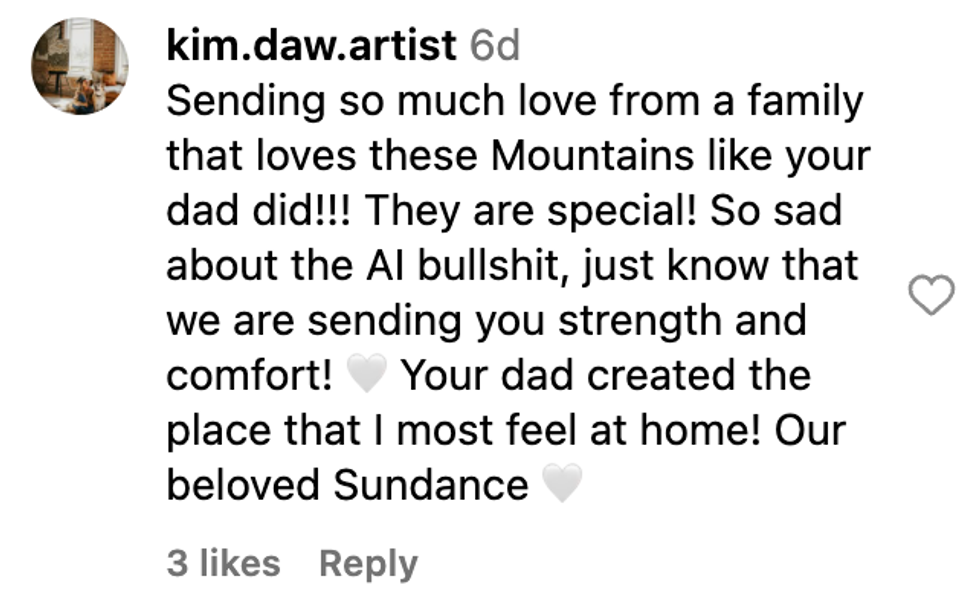
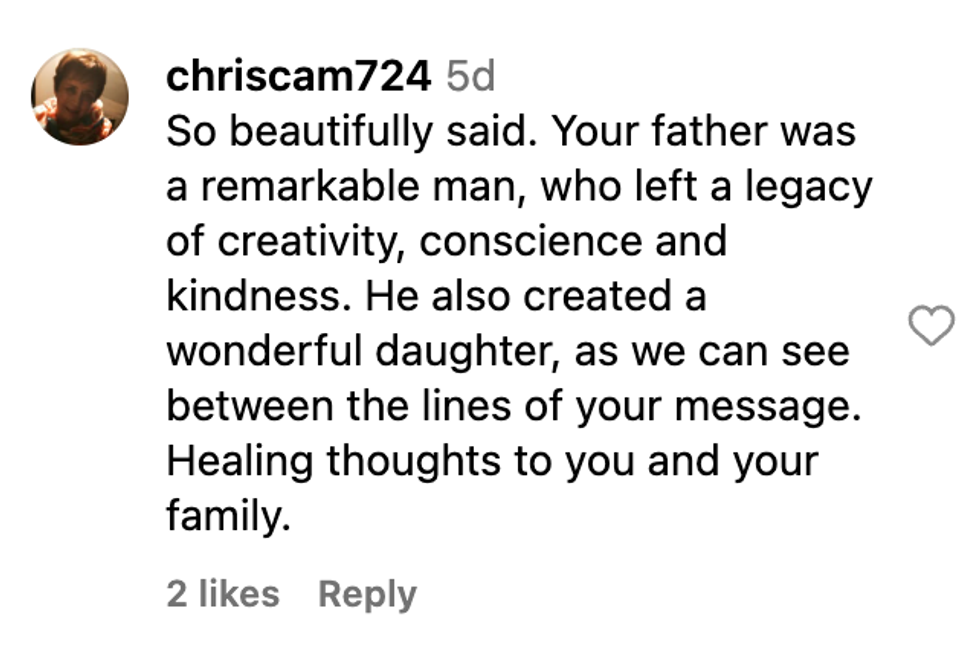
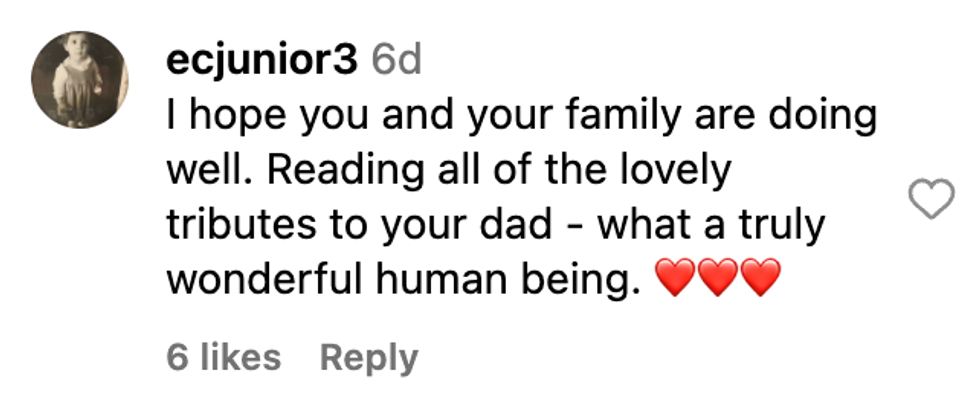
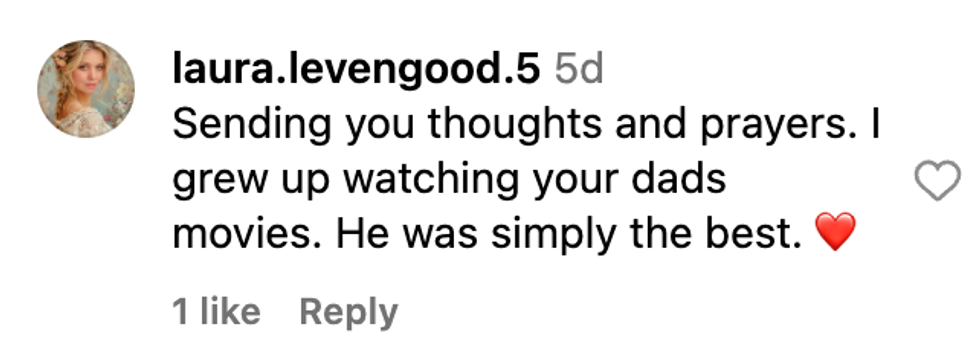
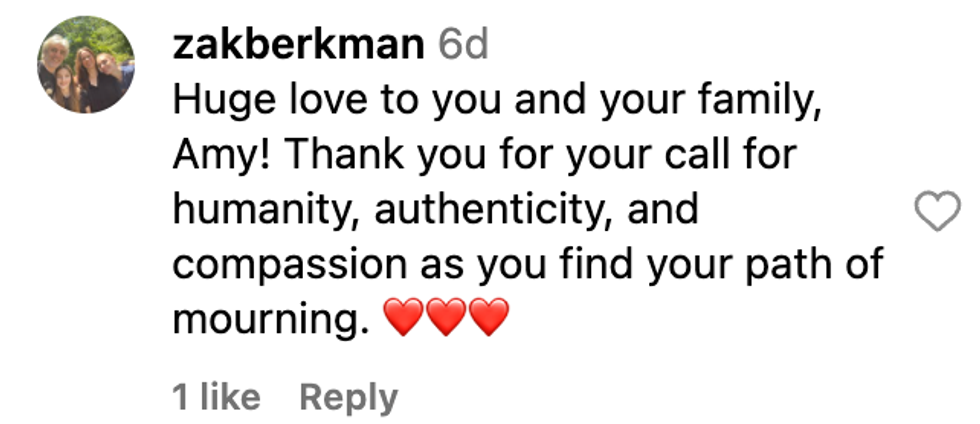
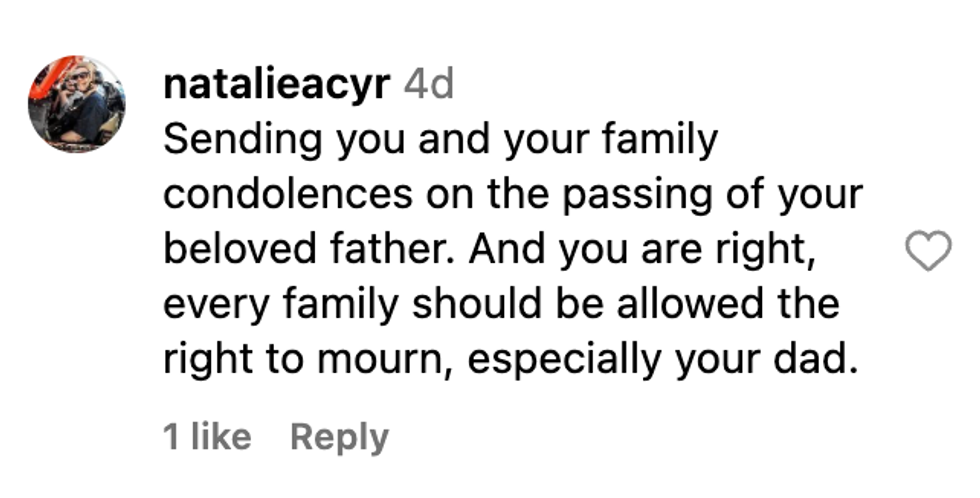
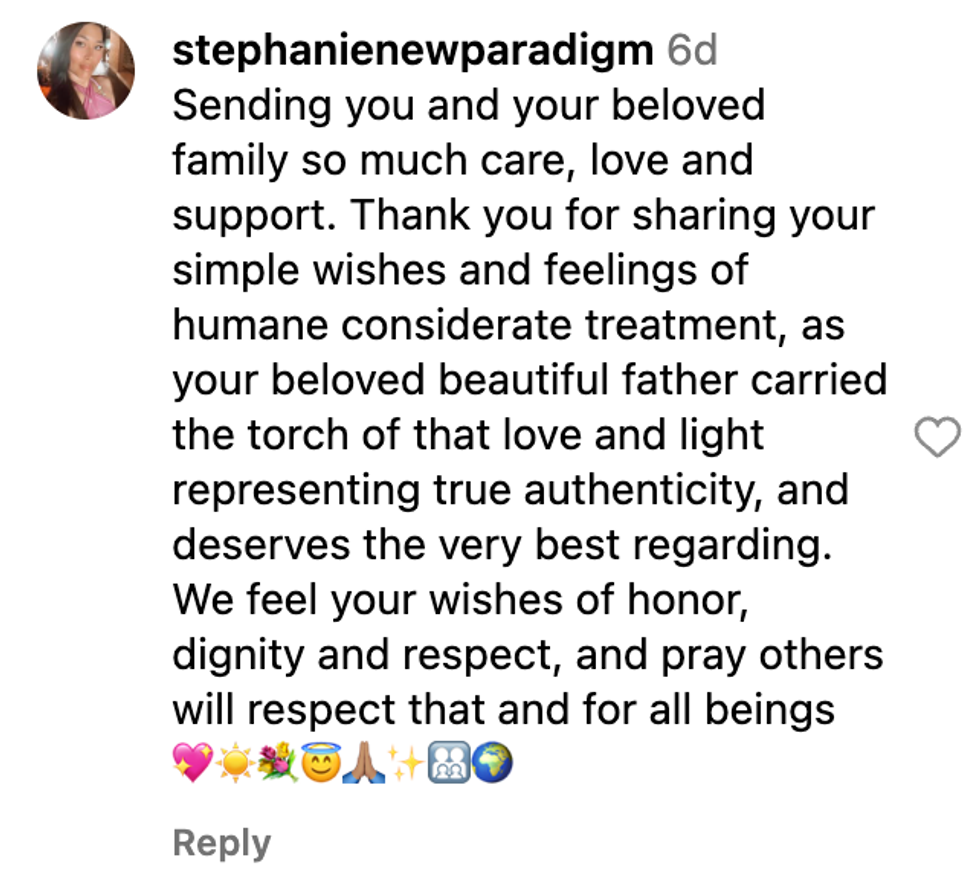
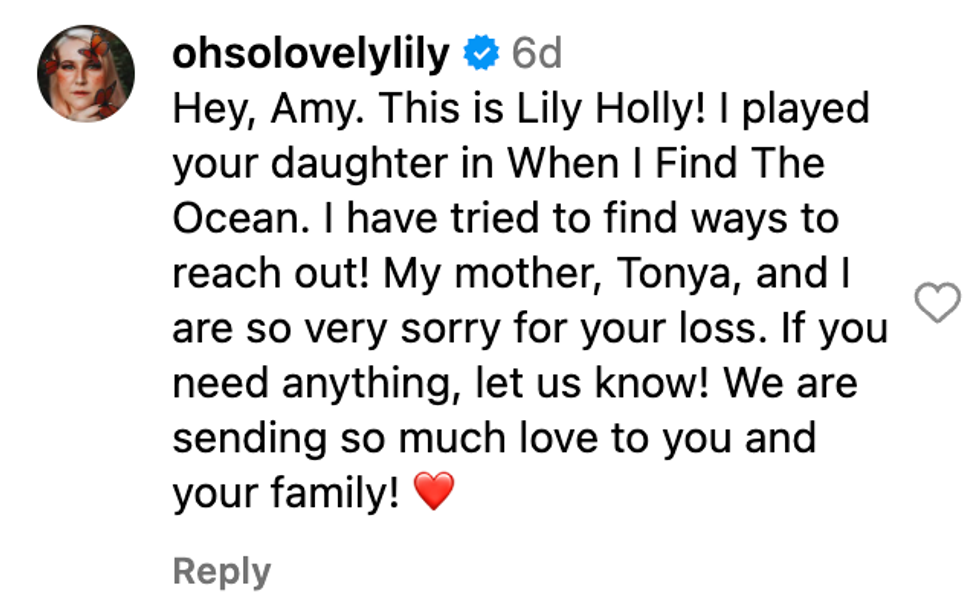
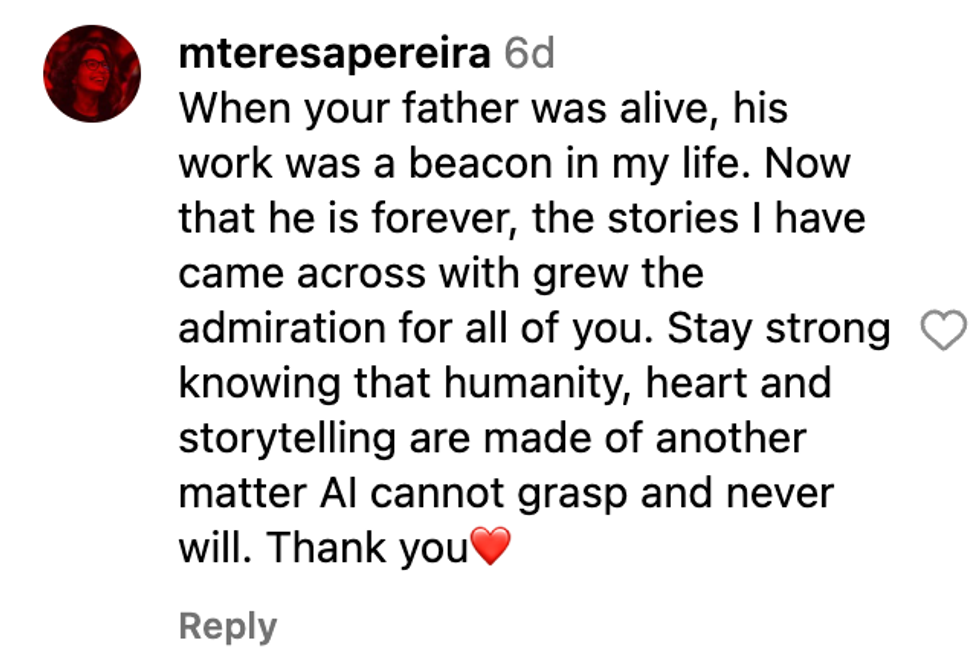
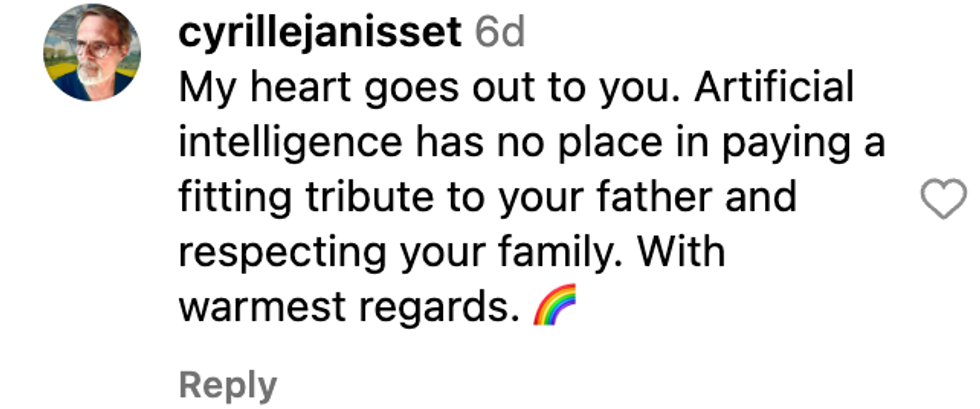
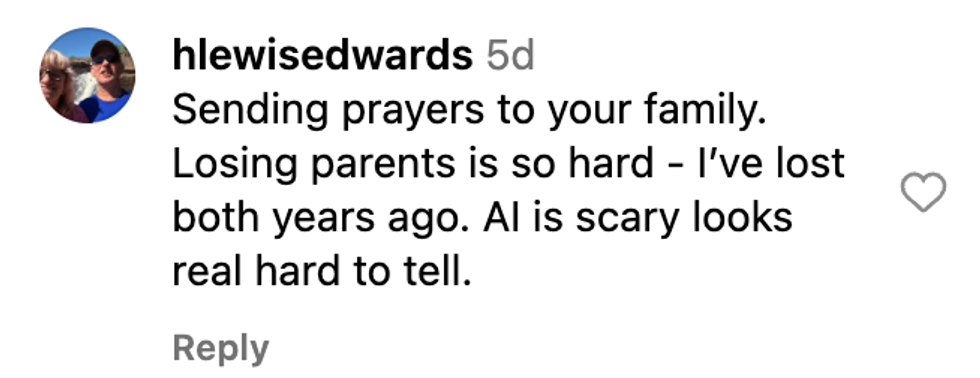
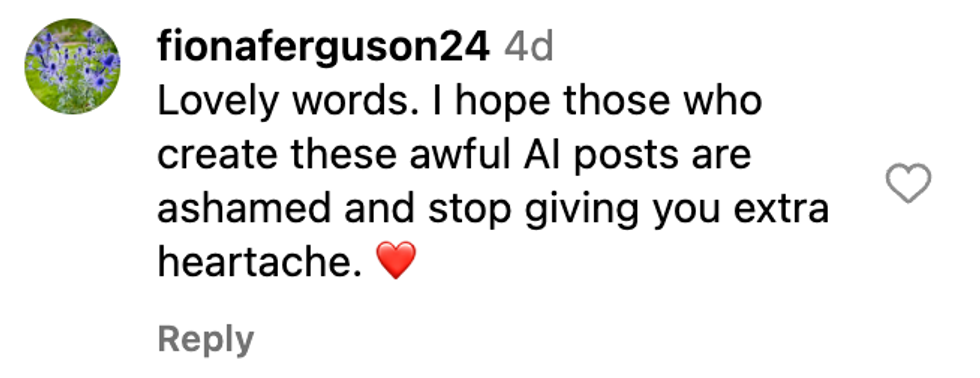
When Robert Redford died in his sleep on September 16 at his home in Utah, messages of sympathy and remembrance arrived from across the entertainment world. Barbra Streisand, his co-star in The Way We Were, called him “charismatic, intelligent, intense, always interesting—and one of the finest actors ever.”
Leonardo DiCaprio also spoke about Redford’s long commitment to environmental work, writing on Instagram:
“His unwavering commitment to protecting our planet and inspiring change matched his immense talent. His impact will endure for generations to come.”
DiCaprio and Redford share a small piece of film history as well. Both stepped into the role of Jay Gatsby, Redford in the 1974 adaptation, and DiCaprio in the 2013 version.
And speaking of The Great Gatsby, Redford’s co-star Mia Farrow posted memories of the actor:
These meaningful tributes from those who worked with Redford, along with notes from fans, offer a clearer picture of his influence than any AI video. Their stories and lived experiences point to a legacy built through decades of work and authentic human connection, not through artificial TikTok recreations.

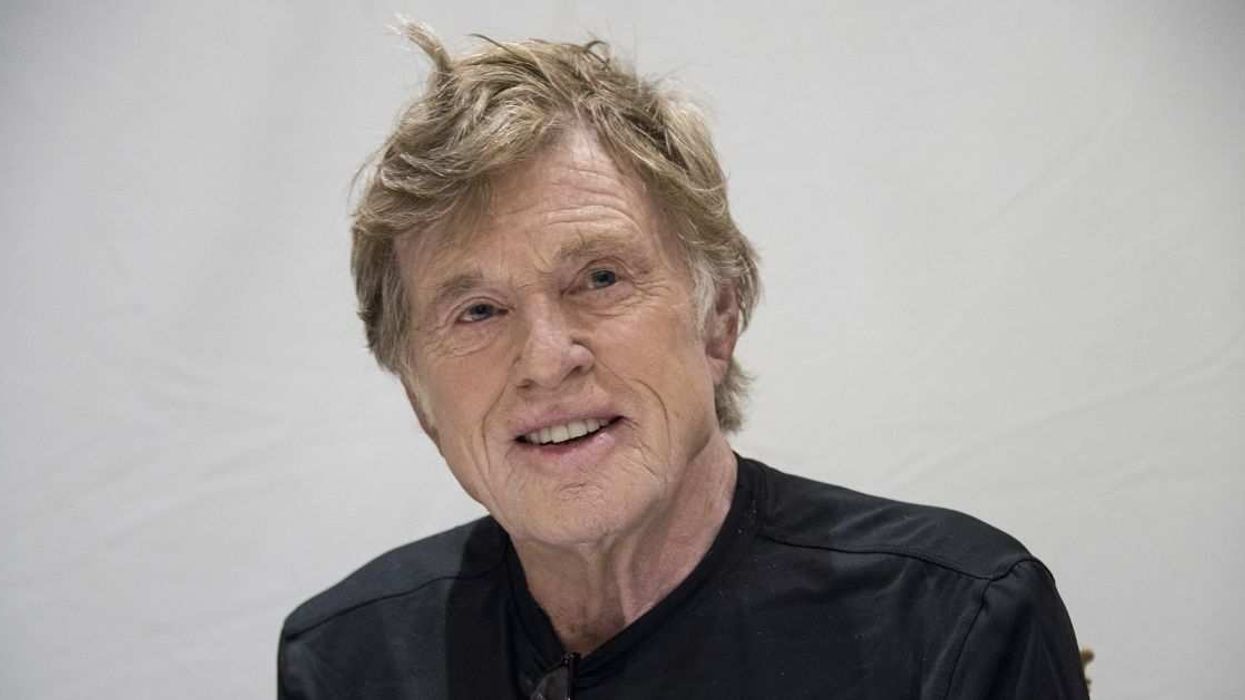












 @DuncanCecil/X
@DuncanCecil/X @@realDonaldTrump/Truth Social
@@realDonaldTrump/Truth Social @89toothdoc/X
@89toothdoc/X @xray_media/X
@xray_media/X @CHRISTI12512382/X
@CHRISTI12512382/X
 @sza/Instagram
@sza/Instagram @laylanelli/Instagram
@laylanelli/Instagram @itssharisma/Instagram
@itssharisma/Instagram @k8ydid99/Instagram
@k8ydid99/Instagram @8thhousepath/Instagram
@8thhousepath/Instagram @solflwers/Instagram
@solflwers/Instagram @msrosemarienyc/Instagram
@msrosemarienyc/Instagram @afropuff1/Instagram
@afropuff1/Instagram @jamelahjaye/Instagram
@jamelahjaye/Instagram @razmatazmazzz/Instagram
@razmatazmazzz/Instagram @sinead_catherine_/Instagram
@sinead_catherine_/Instagram @popscxii/Instagram
@popscxii/Instagram
